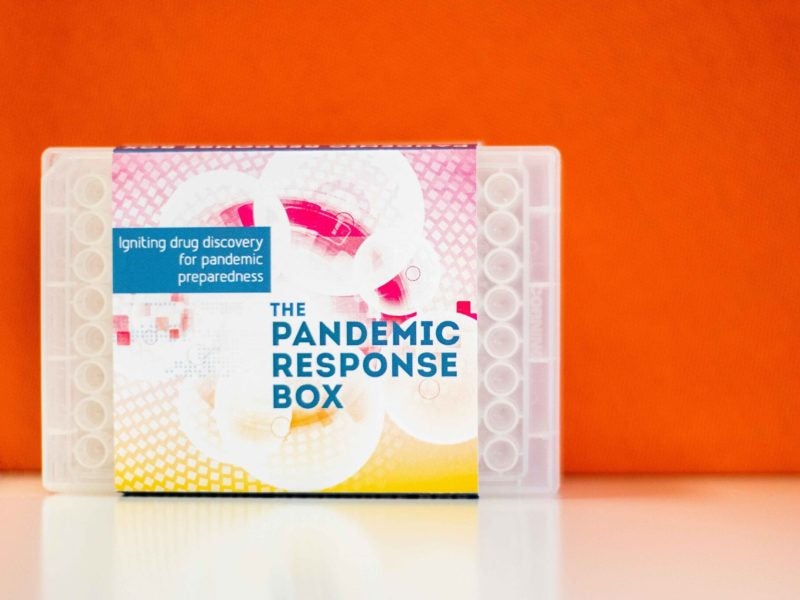
Medicines for Malaria Venture (MMV) has collaborated with the Drugs for Neglected Disease initiative (DNDi) to create a pandemic response box, which contains 400 structurally diverse antibacterial, antiviral and antifungal compounds to help accelerate the discovery and development of new treatments of pandemic diseases.
The response boxes are available free of charge to global researchers from universities and pharmaceutical companies. In return, researchers are expected to publicly share results from research and development (R&D) based on the compounds within two years of obtaining a box.

Discover B2B Marketing That Performs
Combine business intelligence and editorial excellence to reach engaged professionals across 36 leading media platforms.
MMV chief scientific officer Dr Timothy Wells said: “The pandemic response box came about in response to the need to be prepared for a future global health emergency.
“Open innovation is one of the keys to unlocking new potential for drug discovery and tapping into existing expertise to kickstart new research efforts.
“The hope is that these efforts will contribute to the discovery and development of next generation therapies to manage a future pandemic as well as existing threats such as the Zika virus and Ebola.”
DNDi R&D director Dr Graeme Bilbe said: “A deeper understanding of disease pathogenesis as well as research into new, effective therapies could prevent the scenario of drug-resistant pathogens emerging and spreading.

US Tariffs are shifting - will you react or anticipate?
Don’t let policy changes catch you off guard. Stay proactive with real-time data and expert analysis.
By GlobalData“The goal is to help shorten the time between the emergence of a new pandemic and the availability of new drugs to treat it. History has repeatedly shown that saving time saves lives.”
Pandemics are becoming a growing concern globally, partially due to increasing numbers of drug-resistant pathogens; antimicrobial resistance was listed among the World Health Organization’s top ten threats to global health in 2019.
The pandemic response box follows similar initiatives by MMV, such as the malaria box and pathogen box. The malaria box was discontinued in December 2015, but between then and December 2011, 250 were distributed to 30 countries.
The pathogen box was launched in January 2016 and provides drug-like molecules for neglected diseases. The initiative was awarded $1.4m in funding from the World Health Organization due to its focus on poverty-related diseases.




